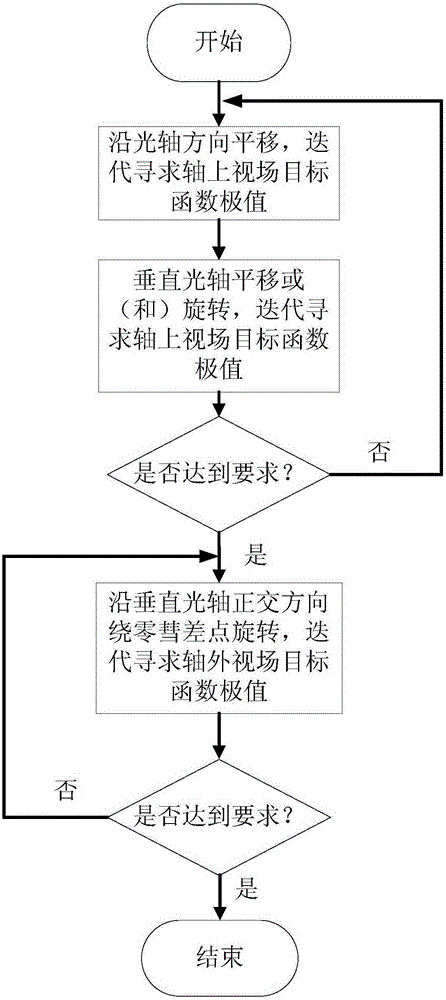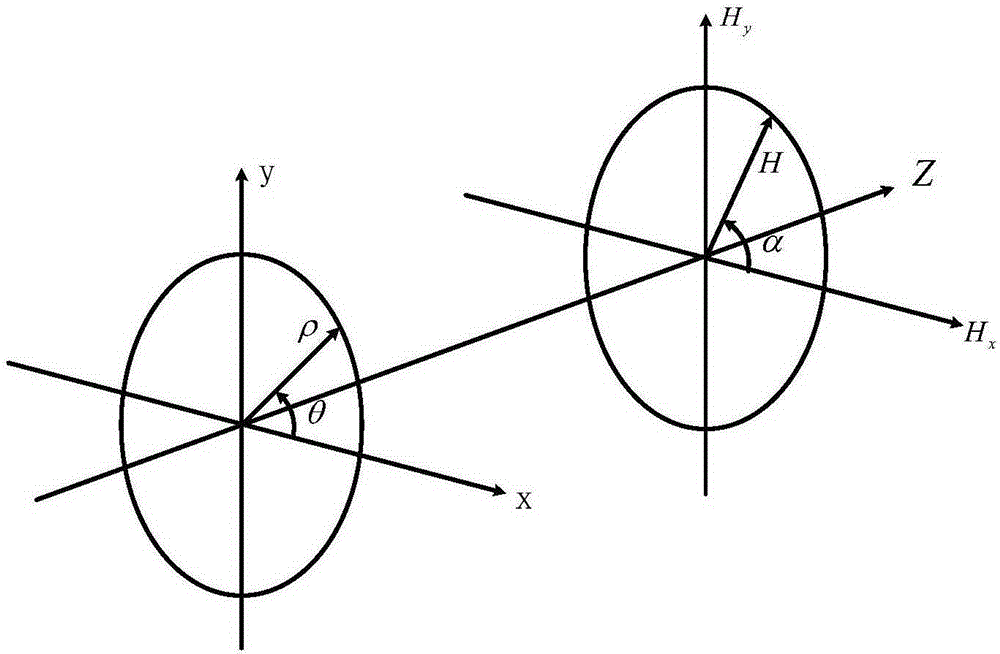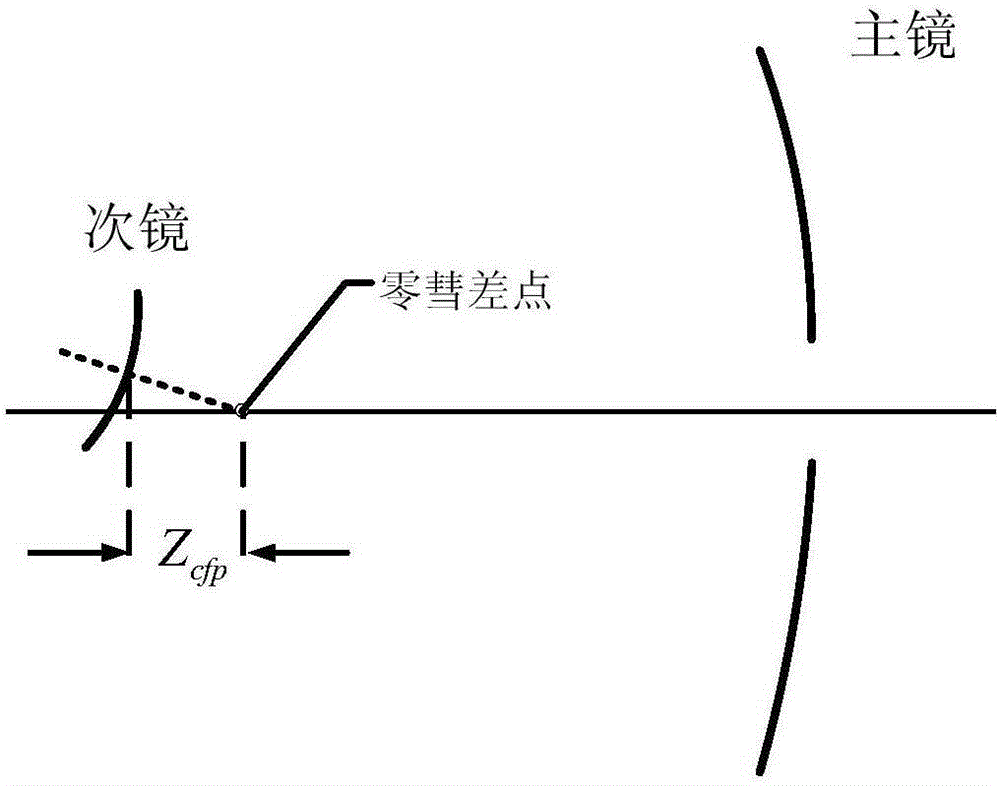A Position Correction Method for Telescope Secondary Mirror Based on Facula Sharpness Function
A correction method and a technology of clarity, applied in telescopes, optics, optical components, etc., can solve the problems of system complexity, matrix relationship deviation, increase the difficulty of engineering implementation, etc., and achieve the effect of reducing system complexity and simple method.
- Summary
- Abstract
- Description
- Claims
- Application Information
AI Technical Summary
Problems solved by technology
Method used
Image
Examples
example
[0042] The simulation uses a two-mirror reflective RC optical system for correction simulation, and the system parameters are shown in Table 1. Put parameters into formula (3) to get Z cfp =-0.0106. The correction process was simulated by using ZEMAX optical design software and MATLAB programming software. The analysis process is carried out according to the steps in the correction process. Considering the existence of deviation, the astigmatism of the field of view on the axis is almost zero. The initial parameters of the correction are despace=80μm, decenterx=600μm, decentery=880μm, tiltx=0.02°, tilty=0.03°. The translation of the optical axis direction and the other four parameters all use the aforementioned stochastic parallel gradient descent algorithm (SPGD), so that the two are iterated separately. The objective function J gradually converges to the minimum value with iterations, such as Figure 5 Shown by the dotted line. The Strehl ratio of the on-axis field of vi...
PUM
 Login to View More
Login to View More Abstract
Description
Claims
Application Information
 Login to View More
Login to View More - R&D
- Intellectual Property
- Life Sciences
- Materials
- Tech Scout
- Unparalleled Data Quality
- Higher Quality Content
- 60% Fewer Hallucinations
Browse by: Latest US Patents, China's latest patents, Technical Efficacy Thesaurus, Application Domain, Technology Topic, Popular Technical Reports.
© 2025 PatSnap. All rights reserved.Legal|Privacy policy|Modern Slavery Act Transparency Statement|Sitemap|About US| Contact US: help@patsnap.com



